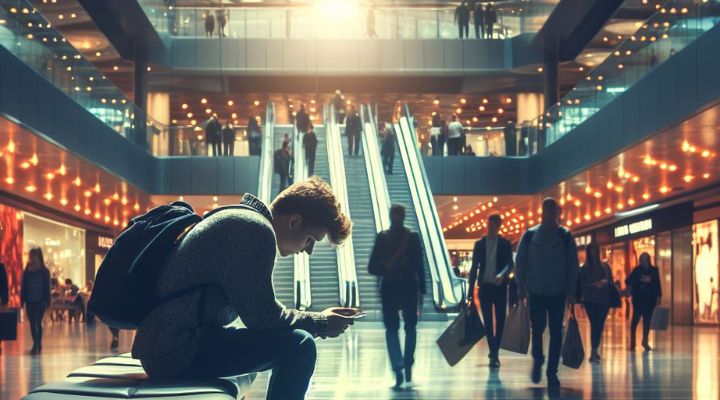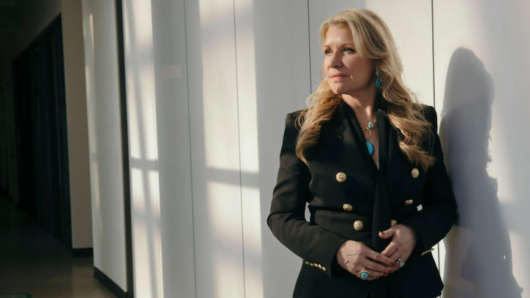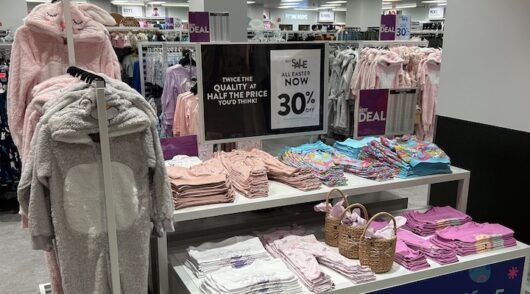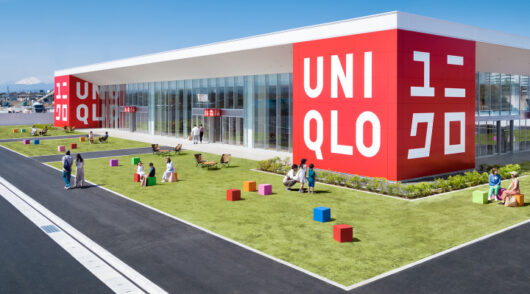Never have we been more connected and more alone. In this age of instant, constant, worldwide connection, we’ve never felt more disconnected or isolated, and post-pandemic, the numbers are not getting any better.
One-third of Australians now experience feeling lonely some of the time, one in six of us severely, and 18-24-year-olds have the highest levels of loneliness in the country. The frequency of social contact has also been declining for decades, with data from the Hilda survey showing a relative decline of 11 per cent since 2001.
But what does all this have to do with High Street Retail?
Simply put, we’ve lost our town centres, our meeting points, our sense of community.
It’s easy to blame it all on smartphones and socials, but architecture and third spaces have a huge impact. The rise of the shopping mall and cookie-cutter chain stores in the 90s and 2000s played a part in disengaging us from our local communities. Mary Portas speaks to a similar trend in the UK, “where these large clone high streets dominated, research showed that people became less engaged with community life”.
“They had fewer conversations and social interactions and for some bizarre reason were even less likely to vote.”.
Over the past three decades or more, we’ve experienced the impact on local neighbourhoods and strips like Oxford St Paddington, when a major centre opened down the road and sucked the life out of a neighbourhood for decades.
But in a silver lining of Covid restrictions, we turned back to our neighbourhoods, with a desire for fresh air, fewer crowds and supporting local businesses. And we’ve stayed. As many of us work from home some of the time, our high streets and neighbourhood shops matter again. Not just for the convenience of going to the dentist on your WFH day, but for the vital human connection it can provide in an otherwise digital day.
These ‘third places’ that aren’t home or work are critical social glue, and retailers have an opportunity to deeply connect with their customers by embracing the power of simple, regular human connection.
The Dutch supermarket chain Jumbo pioneered ‘chat checkout’ to slow things down and encourage interaction, saying: “We are at the heart of society. Our shops are an important meeting place for many people, and we want to play a role in identifying and reducing loneliness.” It was such a successful trial, that chat checkout is now available in more than 200 stores, with positive responses from both customers and staff.
Locally, it’s retailers like Samsung who make a point of asking your name as you enter – and referring to you by it – or Aesop, whose small format, local stores consistently and enthusiastically share the story of the brand with customers, including the use of local architects and materials. You leave feeling richer, seen and valued, and always welcome back. These retailers know it’s back to basics, good old-fashioned customer service, frequency and convenience that people are craving, and that drives loyalty in a saturated market of points-for-data programs.
Retail landlords are also becoming increasingly aware of the positive effect they can have on how we function as social groups. Frasers Group has partnered with Ending Loneliness Together, to shape the way it builds and supports local communities in their retail developments. It aims to reduce loneliness through a mixture of good public space design and tailored, consultative social programs.
Whilst there will always be a place for fabulous flagship experiences, in our increasingly lonely, disconnected world, it’s clear there is a huge need and opportunity for retailers to support the continued rise of community-focused high street offerings.
The generic middle has lost its allure, and at Franklin Shanks, we work with smart retailers to review their store networks and footprint, ensuring they strike the right balance, and delivering store locations and formats that meet people where they are, and, crucially, where they’re needed most.
Get in touch with us to chat about store location strategy, site sourcing and all things retail property.
Email the author, Jaymie Rowland, at jaymier@franklinshanks.com, or visit the company’s website: www.franklinshanks.com.






